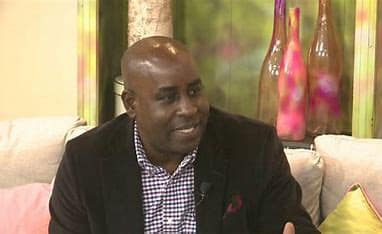Have you ever made a decision that felt right in the moment—only to regret it later? Maybe you trusted someone who turned out to be deceptive, or followed advice that led you down the wrong path. In a world overflowing with information, opinions, and distractions, one skill stands out as essential for navigating life wisely: discernment.
Whether you’re choosing a career path, evaluating a relationship, or seeking spiritual direction, discernment is the compass that helps you steer through complexity with confidence. And the good news? It’s not just a rare gift reserved for sages or mystics. It’s a skill anyone can develop—and benefit from—starting today.
What Is Discernment?
At its core, discernment is the ability to perceive and judge clearly. It’s the mental and emotional clarity that helps you distinguish between what’s good and what’s merely appealing, what’s true and what’s misleading, what’s wise and what’s impulsive.
Think of it as your internal filter—one that helps you pause, reflect, and choose intentionally rather than reactively. It’s not just about intelligence or gut instinct; it’s about integrating experience, values, and insight to make thoughtful decisions.
What Is Spiritual Discernment?
While general discernment helps us navigate everyday choices, spiritual discernment takes us into deeper territory. It’s the ability to sense what aligns with your higher purpose, your faith, or your inner truth.
In many religious traditions, spiritual discernment is seen as a divine gift—a way to recognize what is spiritually beneficial versus what leads us astray. For example, in Christian teachings, spiritual discernment helps believers distinguish between the voice of God and the noise of the world.
Even outside of religious contexts, spiritual discernment can be understood as tuning into your deepest values and intuition to make choices that nourish your soul.
The Benefits of Discernment
In today’s fast-paced, hyper-connected world, we’re bombarded with choices—what to buy, who to follow, what to believe. Without discernment, we risk becoming overwhelmed, manipulated, or misled.
Here’s how cultivating discernment can transform your life:
- Better Decisions: Reduces regret and increases confidence.
- Healthier Relationships: Helps you recognize red flags and set boundaries.
- Personal Growth: Encourages reflection and alignment with your values.
- Spiritual Clarity: Keeps you focused on what brings peace and purpose.
Discernment is the difference between living reactively and living intentionally.
How to Practice Discernment
The beauty of discernment is that it’s not abstract—it’s incredibly practical. Here are steps you can take to build this skill:
1. Pause Before You Decide
Before making a decision, ask:
- What are the long-term consequences?
- Does this align with my values?
- Am I being pressured or manipulated?
Even a 10-second pause can shift your perspective.
2. Seek Multiple Perspectives
Talk to mentors, read widely, and consider opposing views. The goal isn’t to be swayed, but to be informed.
3. Reflect on Past Experiences
Think about decisions you’ve made—what worked, what didn’t, and why. Patterns often reveal themselves when you take time to reflect.
4. Tune Into Your Intuition
Learn to recognize when your intuition is nudging you—and when fear or ego might be disguising itself as instinct.
5. Practice Spiritual Discernment
Make time for prayer, meditation, or reading sacred texts. Ask for guidance. Journal your thoughts. Spiritual discernment grows in quiet moments of connection.
6. Stay Humble and Open
Discernment isn’t about being right—it’s about being wise. Stay open to correction, willing to learn, and humble enough to admit when you’ve missed the mark.
Real-Life Example: The Job Offer Dilemma
Imagine you’re offered a high-paying job in a city far from your family. On paper, it’s perfect. But something feels off. You pause. You reflect. You talk to loved ones. You consider your values—family, community, balance. You realize that while the job is tempting, it doesn’t align with your deeper goals.
That’s discernment in action. It’s not always easy—but it’s always empowering.
Your Call to Action
Discernment isn’t a one-time decision—it’s a lifelong habit. And like any habit, it starts with small steps.
Today, choose one area of your life where you feel uncertain. Pause. Reflect. Ask questions. Seek wisdom. And trust that clarity will come—not all at once, but steadily.
You don’t need to have all the answers. You just need to start asking better questions.
Because when you live with discernment, you don’t just make better choices—you become a better version of yourself.


